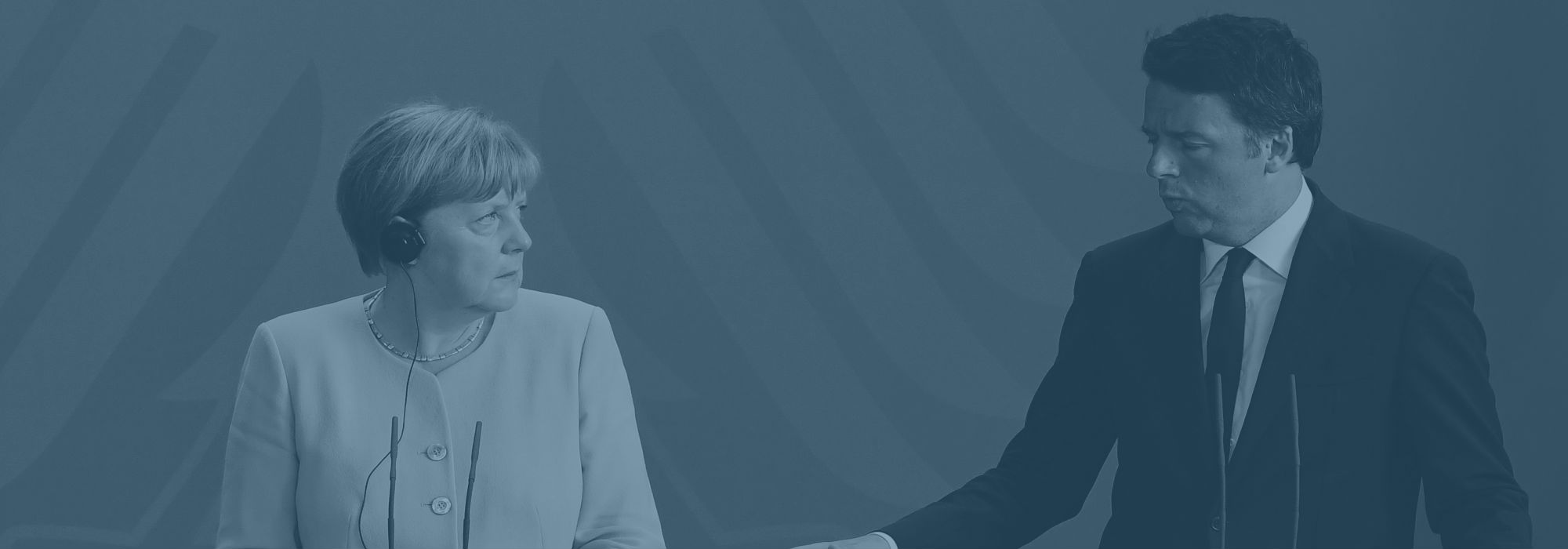By Lili Bayer
In a July 3 interview with German paper Welt am Sonntag, German Finance Minister Wolfgang Schäuble said the post-Brexit European Union has to do a better job of addressing the bloc’s problems and the public’s concerns. He said, “Europe must undergo its rendezvous with reality.” Schäuble warned that it is now time for pragmatism, and that if the European Commission fails to unite all member states on some issues, “we will take the matter into our hands ourselves, and just resolve the problems directly between governments.” Schäuble is not a novice at dealing with European crises. He has served as Germany’s finance minister since 2009, throughout the entirety of the eurozone crisis and Greece’s tumultuous debt negotiations, and will now face Europe’s next big economic crisis centered on Italy.
His remarks are significant because the process he is describing is quickly unfolding, with potentially serious ramifications for Germany and the eurozone. Over the past few days, there have been growing indicators that European governments are in the midst of a rendezvous with the realities of fragile decision-making processes and weak banking sectors. Italy’s banking crisis is advancing to the next stage and the Italian government is considering taking matters into its own hands – putting Rome on a collision course with Berlin and Brussels.
Schäuble once joked with U.S. Treasury Secretary Jacob Lew that the eurozone would take in Puerto Rico, if the U.S. would allow Greece to adopt the U.S. dollar. Today, however, one must wonder if he would prefer to swap Italy instead. We have written extensively about the dangers facing Italy’s banking sector, which is suffering under the weight of 360 billion euros ($399 billion) worth of non-performing loans. Italy’s crisis is growing, as markets, governments and European institutions have become more aware and publicly concerned about the extent of Italy’s woes and the potential for contagion across the eurozone.
Italy, EU regulators and eurozone countries like Germany are caught in a toxic cycle. The EU’s rules have limited the Italian government’s ability to provide support for struggling banks. Partly as a result, European regulators have been cautioning about the state of Italian banks. EU warnings about banks have spooked investors – the same investors that the Italian government and EU had hoped would buy tranches of bad loans under an EU-approved plan to help Italy’s banks.
Failure to effectively implement this plan has forced the Italian government to consider alternative ways to pump money into ailing banks. Some of these plans, however, may contravene EU rules. Floating these alternative proposals is further spooking European institutions and private investors, while heightening tensions between Rome and Berlin.
This dynamic has come to the fore recently. The European Central Bank sent a letter to Italy’s third largest bank, Banca Monte dei Paschi di Siena, saying it must cut its non-performing loans from 24.2 billion euros to 14.6 billion euros by 2018, double an earlier planned cut. The revelation of the letter on July 3 sent shares falling and led officials in Rome to begin considering new options for pumping money into the bank.
On the same day, an unnamed Italian source with knowledge of government plans told the Financial Times, “We are willing to do whatever is necessary [to defend the banks], and do not rule out acting unilaterally, although that would only be as a last resort.” The government in Rome is racing to find solutions – from expanding its Atlante fund to helping boost banks’ positions to providing indirect state assistance. But as the dire state of Italy’s banking sector becomes clearer to investors, regulators and the general public, pressure to act – even if measures contravene Italy’s EU commitments – is mounting.
Last week, Italian Prime Minister Matteo Renzi and German Chancellor Angela Merkel clashed, yet again, over Italy’s fiscal and banking policies. Merkel maintained that there is “enough flexibility to work with, including in the current situation” and that “we can’t come up with new rules every two years.” Renzi replied that Italy won’t be “lectured.”
On the surface, Italy’s negotiations with Germany and the EU are reminiscent of the frequent discord between Greece and its counterparts in the EU, especially Germany, over debt and austerity. In both cases, Germany has worked to enforce EU and eurozone rules in order to deter future rule-breaking and ensure the longevity of the monetary system Berlin dominates.
The eurozone allows Germany to maintain strong relations with reliable export markets. A breakup of the eurozone would spell economic disaster for its export-dependent economy. Italy’s crisis, at the core, could be of much greater significance than any of Greece’s recurring troubles. The German leadership may want to prevent Italy from receiving exemptions from EU regulations, but policymakers in Berlin also likely recognize that a full-scale banking crisis in Italy – the eurozone’s third largest economy – could break up the currency bloc.
Italy and Germany are thus caught in a trap. The Italians would like to avoid a banking catastrophe at the lowest financial and political cost possible. The Germans would like to safeguard the stability of the eurozone and the rules that underpin the bloc’s integration.
Italy’s banking problems are escalating, and all sides are grappling with different interests and fears. At the same time, Europe’s fragmentation is intensifying, and a growing number of players are recognizing that different member states have diverse relationships with the bloc and with one another. Schäuble talked about a “rendezvous with reality.” The rendezvous is underway, and the reality is increasingly difficult to face.





